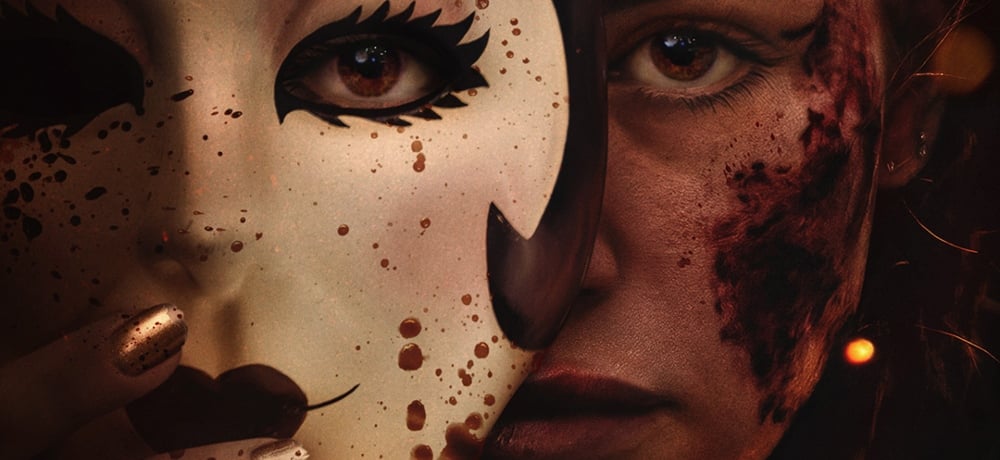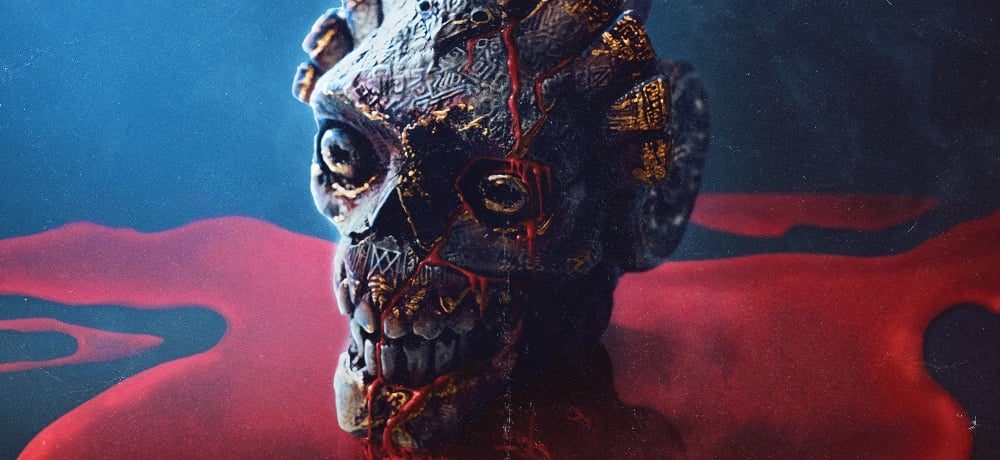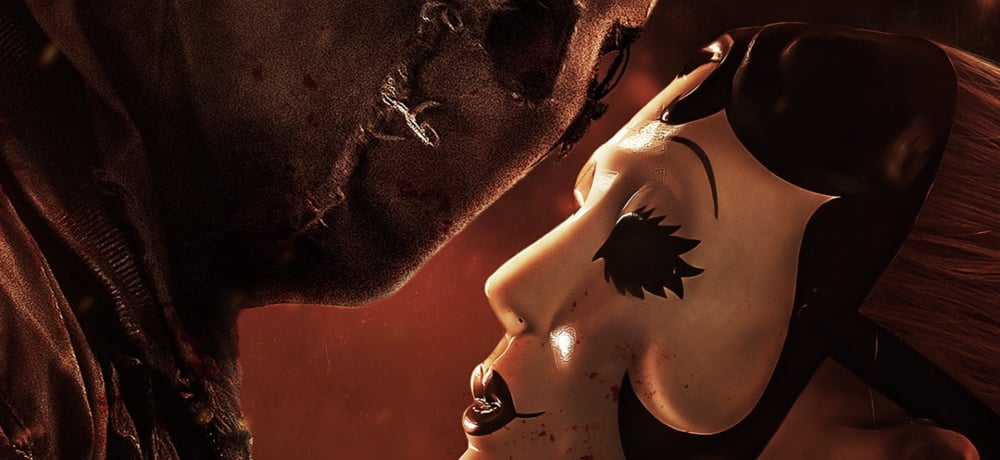





Director André Øvredal’s latest film, The Autopsy of Jane Doe, recently enjoyed its debut here in Austin for the 2016 Fantastic Fest. The story follows a father and son (Brian Cox, Emile Hirsch) who work as coroners in their family mortuary business. One night, the sheriff drops off the corpse of a young woman found at a crime scene, and the duo have only a short amount of time to try and piece together what happened to the mysterious woman. But as their examination progresses, the circumstances surrounding the woman’s death become more and more unusual, revealing terrifying secrets the further they get in their work.
While in Austin, Daily Dead had the opportunity to speak with Øvredal, who discussed why he felt The Autopsy of Jane Doe was a great sophomore effort, working with his insanely talented cast, and whether or not we’ll ever see more from the amazing world he established in Trollhunter back in 2010.
Congratulations on the film, André. I’d love to hear how you got involved with the project, and what about it in particular caught your eye.
André Øvredal: To do the opposite of Trollhunter was a big, big thing for me. After Trollhunter, I was offered a lot of scripts in the space of found footage, and also horror and fantasy to a degree, and monster movies and genre stuff. Some of them were really intriguing, and I was working on a couple of them for a couple of years, but then none of them really materialized.
Then, I remember, it was the summer of 2013, and I came out of The Conjuring, and I was floored by it. I thought it was such a clever, superbly, well-directed—a master class in horror direction. I literally just called my agent and said, "Okay, now let's just do a proper horror movie. Let's just find a proper horror movie." Then, a month later, I was sent the script and I loved it.
As I said in the Q&A yesterday, I went into my bedroom and I read it in 45 minutes. I usually take hours to read a script. It was just an amazing, scary read, and so intriguing. I was just so fascinated by the whole world, and the detail of what was there. Then I asked to talk to the producers and they loved my take on it. That was essentially it.
I thought both Ian [B. Goldberg] and Richard [Naing] did a really fantastic job with the script. I'm curious, when you came in, did you go through and add anything to make it your own, or was everything that you really wanted out of it already right there in the script?
André Øvredal: 95% of it was there. We did some tweaks, but they were minor tweaks more than anything. The script was so carefully constructed, and so thoroughly worked through, and you could feel that on the page. It felt like you were reading a Stephen King novel. The suspense was brilliant.
Something that is important to me when dealing with suspense, is that the writers I work with need to understand that their suspense has to match my own, or there’s a disconnect. The way Ian and Richard wrote the script, it just spoke to me as a filmmaker. I've seen all these horror scripts where the writer understands how to create suspense, but the style isn't the same as mine, and then I have to rewrite the whole thing. So I was just so happy to find a script that spoke cinema in the same way as I see it.
You also mentioned, yesterday at the Q&A, the challenges of having to take a character, which is essentially this corpse, and make it engaging, compelling, and interesting. Did you have to change your approach as a director to shoot that in particular versus a live actor? I'm just curious if there were any tricks or techniques that helped you give Jane Doe a sense of life and make her such a compelling piece of this film.
André Øvredal: First of all, I’m so glad to hear that it works. Second of all, we did use an actress about 90% of the time, so that helped. In a way, I wanted to make sure that we get to know her through the movie, and, in the beginning of the film, make her feel more distant, more like an object or this dead thing. Then, as the movie progresses, slowly we get more and more into her and closer to her in a way. When they are talking about her, when they're trying to figure out what has happened to her, it starts to fill your head with all kinds of things that you as an audience member project onto her.
Has she been raped? Has she been tortured? Had this or that been done to her? That feeds the audience's mind more than anything, and you start to read into things with her. As Richard said at the Q&A, a very important thing to all of us, and especially to those in directing, is to make sure that the audience sympathizes with her; that they feel for her. She's a complete victim of something horrific, we just don't know what it is. That alone is going to make you feel something for this—it's a person. It's not really an object, because it has a face. She has eyes. She has a beautiful face. She's everything.
Emile's been one of my favorite young actors for a while; I loved him in Alpha Dog, Lords of Dogtown, and Killer Joe, too. He makes really smart choices about the projects that he does. In this film, I loved that there was conflict with his character between what he wanted to do with his life and his loyalty to his dad. So many times you see movies manipulate that drama, yet you guys didn't. It was his own internal struggle as opposed to a conflict between himself and Brian Cox's character. And I also thought he and Brian had brilliant chemistry together, too.
André Øvredal: To portray conflict, first you have to look at the relationship between a father and his son. I don't like when I see heightened conflict for no reason in movies, because people don't usually talk to each other like that. It has to be something dramatic going on if you're really aggressively speaking. It's a dramatic moment in your life. A lot of these conflicts are actually quiet. They're oftentimes unspoken. Like you're saying, you just try to open up the conflict when you have something.
I was just lucky to find the right script where they thought the same way about psychology and about human beings as myself. That's why these great actors also gravitate towards the script, because it isn't artificial. It is actually truthful in how people are together; how they behave. There's no reasoning for conflict. And to work with them was just like seeing a master class in acting. To call myself the director of these actors, there's not really much truth in it. They're amazing, amazing performers who understand psychology, who understand performance, who understand the superb details of how these moments all work.
We'd do one take, and it would be great, and we could all, in theory, end after the first take. What was so fascinating is that you’d do a second take, and a third, and a fourth take, and the performances actually got better and better and better, because they experienced the scene in the moment, and then they became even more truthful.
I’m a big fan of Trollhunter. It was one of those movies that I probably recommended to 100 people the year it came out (and since), because it was so much fun. There was some talk for a little while that you guys were thinking about doing a sequel, or doing something more with that world, and I was wondering if that is still something that you’re thinking about, or have you moved on from that world now?
André Øvredal: I have a bit of a fear of touching it, because I'm also very fond of the movie, and I've struggled with trying to figure out how to do a sequel—a sequel that I would be proud of, and that would actually work to further the development of that world and not just thread back into it again.
I'm happy to move on. There are things brewing somewhere about potentially doing something more with it, but I don’t know if that will happen. There was some talk about Chris Columbus wanting to do a remake, but that didn't work out. I am a huge fan of everything he's done, and it might have been cool, but, yeah, it didn't bother me when that didn't work out.